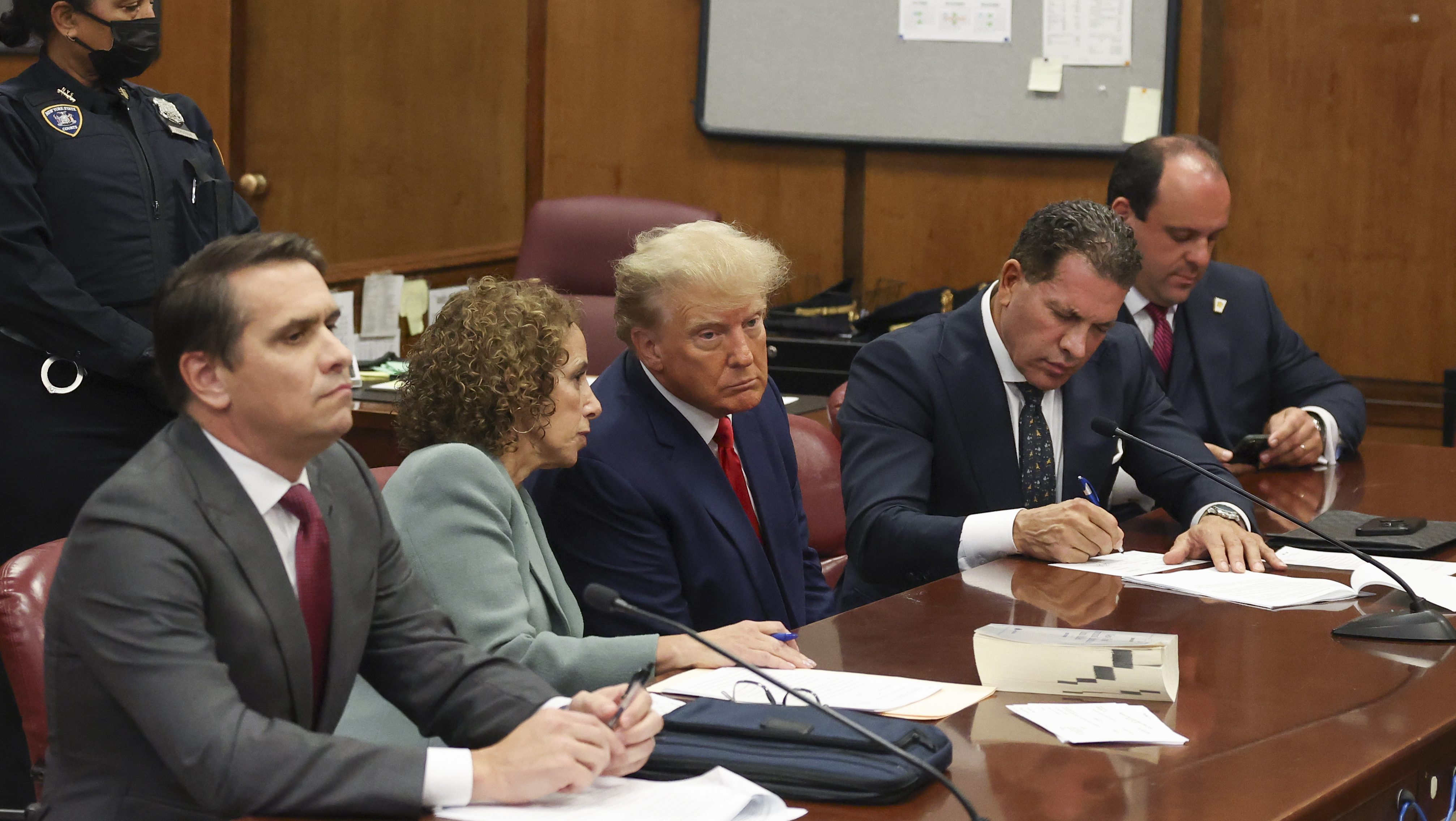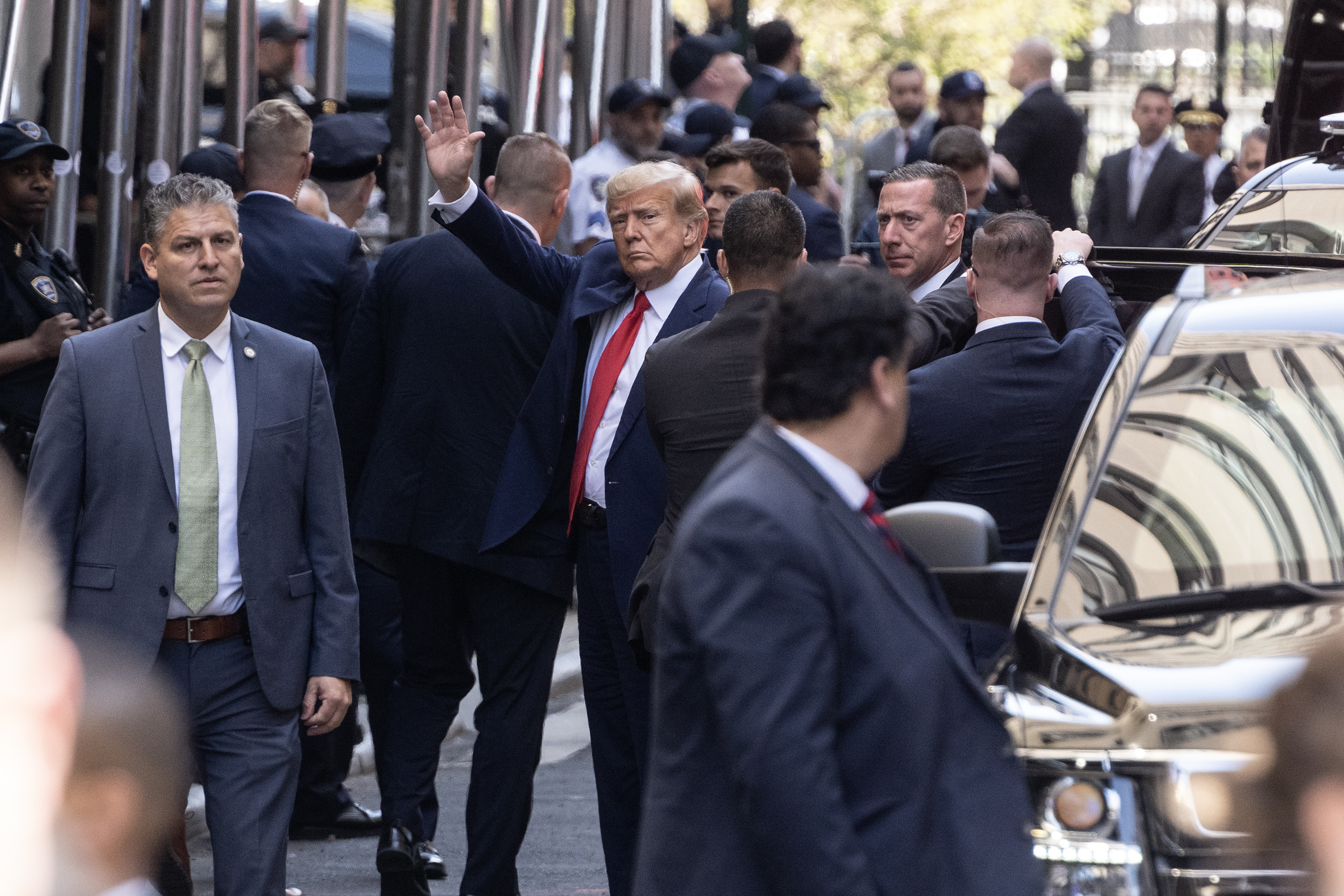Donald Trump staring directly at the camera in a black T-shirt. Giving a side-eye in a suit and striped tie. Scowling in an orange jumpsuit.
A slew of such images claiming to show the former president’s mug shot spread online Tuesday — even though Trump didn’t actually take one during his booking and arraignment in a Manhattan criminal court.
The fabricated images, at least some of which were created using artificial intelligence text-to-image generators, fooled some social media users looking to track down the visual symbol of Trump being charged for 34 felony counts of falsifying business records.
Get Tri-state area news and weather forecasts to your inbox. Sign up for NBC New York newsletters.
Trump, who pleaded not guilty to all charges, also raised money off his own fake mug shot, which his campaign plastered on a T-shirt in an email to supporters Tuesday. An email blast said that the shirt was "free" — after a $47 contribution to the campaign.
Here’s a look at the facts.
CLAIM: Images circulating on social media show mug shots of the former president captured on Tuesday.
THE FACTS: These images were created or manipulated to look like booking photographs.
After he was taken into custody on Tuesday, Trump was fingerprinted as part of the booking process, but his mug shot was not taken, according to two law enforcement officials.
Still, more than 10 fabricated images purporting to show Trump’s police photo circulated across Twitter, Facebook, Instagram and TikTok on Tuesday, some more realistic than others.
“On a level from 1-10 how happy are you that Trump has been ARRESTED?” wrote one Twitter user who shared a fake booking photo in a post that was liked more than 13,000 times.
The images circulating on social media depicted the former president in outfits ranging from a suit and tie to a T-shirt, and in front of numbered walls or gray and white backdrops.
Trump’s campaign also fabricated its own mug shot, which it emailed to supporters on an image of a T-shirt with the words “NOT GUILTY.” It was created by editing height markers and a slate with fake booking details into an existing headshot of the former president.
Some users sharing other variations acknowledged they had been created using AI tools — which were also behind a flood of fabricated images last month purporting to show Trump being violently arrested by New York City police officers.
Many of the bogus mug shots bore hallmarks of such synthetic artwork, such as nonsensical numbered text in the background instead of a height chart often seen in booking photos.
While some posts were shared in clear jest, AI images “lend themselves to context-collapse,” said Sam Gregory, executive director at Witness, a nonprofit working on using video technology for human rights.
That means if they lose their initial context as parody or satire, the images can circulate as misinformation or disinformation.
“Like other manipulated media, the speed of sharing exceeds the speed of fact-checking,” Gregory said, and “people share what they want to believe.”
Associated Press writers Michael Balsamo and Colleen Long in Washington contributed to this report.




